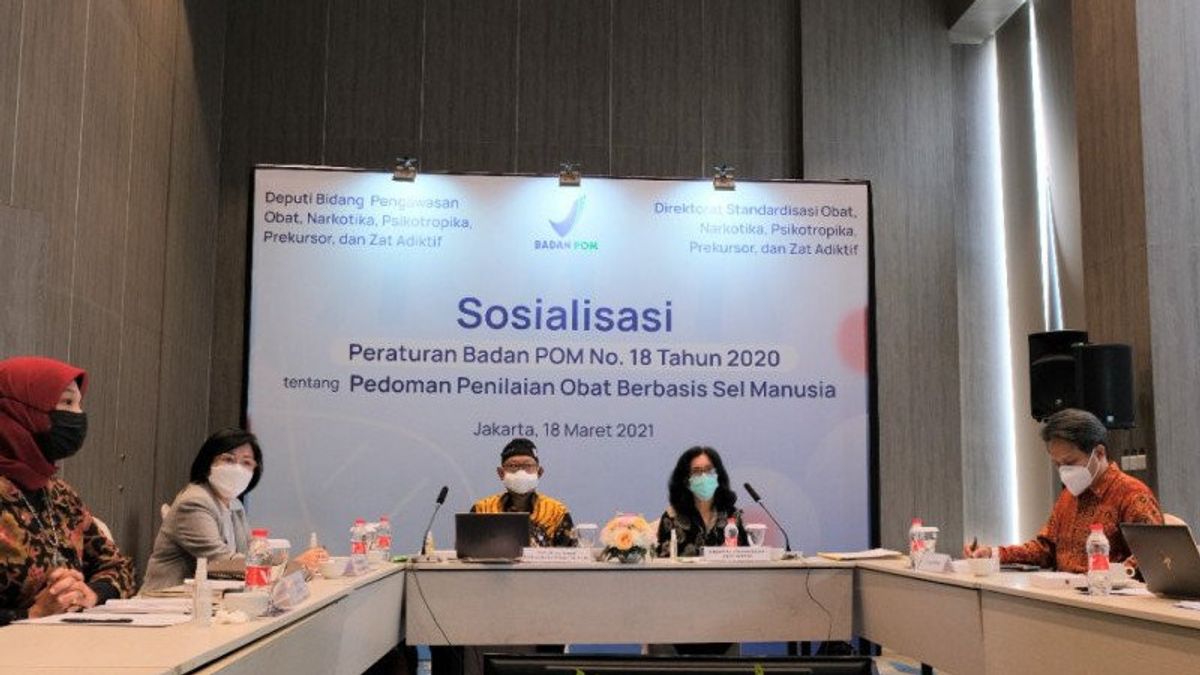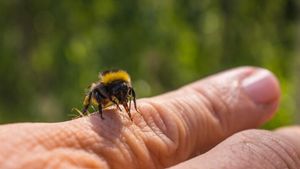JAKARTA - The Food and Drug Supervisory Agency (BPOM) has socialized guidelines for the development and manufacture of human cell-based drugs in order to encourage the independence of the domestic pharmaceutical industry.
"The presence of this guideline is also intended to support drug independence in Indonesia, especially human cell-based drugs. This is in line with the implementation of Presidential Instruction Number 6 of 2016 concerning the Acceleration of Development of the Pharmaceutical Industry and Medical Devices," said Acting Deputy for Drug, Narcotics, Psychotropic Control, Precursors and Addictive Substances, Rita Endang, in a written statement in Jakarta, reported by Antara, Friday, March 19.
Rita said that innovative human cell-based drugs are increasingly being researched and are starting to be used for medicinal therapy along with the development of health technology.
For example, stem cells or stem cells have been used in the treatment of fractures, blockages in heart blood vessels, and peripheral nerve injuries (strokes).
In order to oversee the assurance of the quality, efficacy and safety of human cell-based drugs before they are widely used in the community, the POM has held a Socialization of Regulation of the Food and Drug Supervisory Agency Number 18 of 2020 concerning Guidelines for Assessment of Human Cell-Based Drugs online and directly to the public.
Rita said that the POM Regulation Number 18 of 2020 concerning Guidelines for the Assessment of Human Cell-based Drugs is a policy formulated to support the downstreaming of human cell-based drugs since the beginning of its development.
The guidelines referred to include guidance in the development, manufacturing process including quality control, as well as the development of non-clinical and clinical human cell-based drugs that will be mass produced, until the issuance of a distribution permit from the POM.
The POM is committed to making the Guidelines for the Assessment of human cell-based drugs compiled into a comprehensive and applicable guide, both for business actors and for evaluators at the POM.
"Hopefully it can answer the challenges faced in the downstream process, and the support needed from the Government in realizing the independence of the domestic pharmaceutical industry," he said.
The English, Chinese, Japanese, Arabic, and French versions are automatically generated by the AI. So there may still be inaccuracies in translating, please always see Indonesian as our main language. (system supported by DigitalSiber.id)












